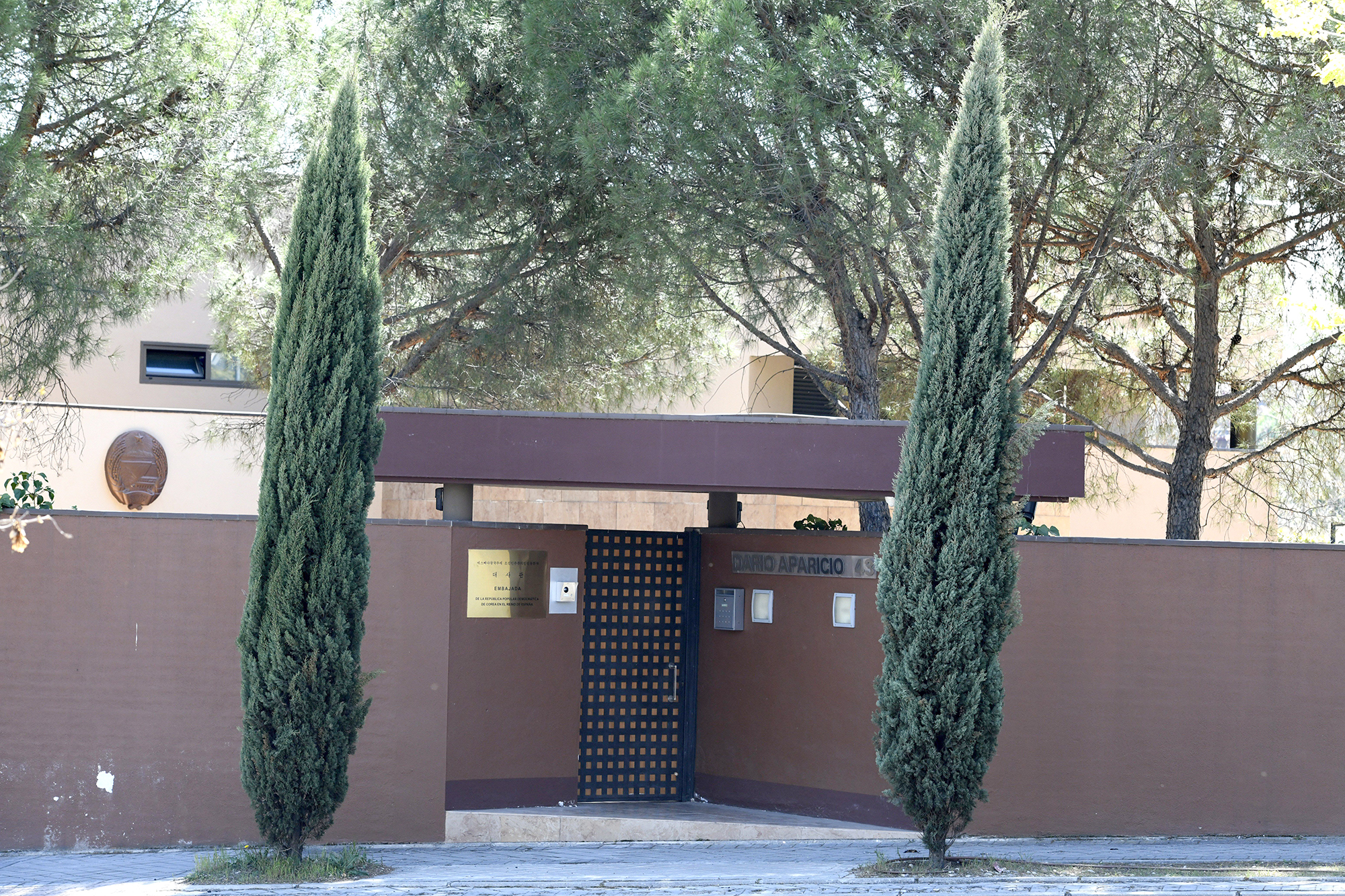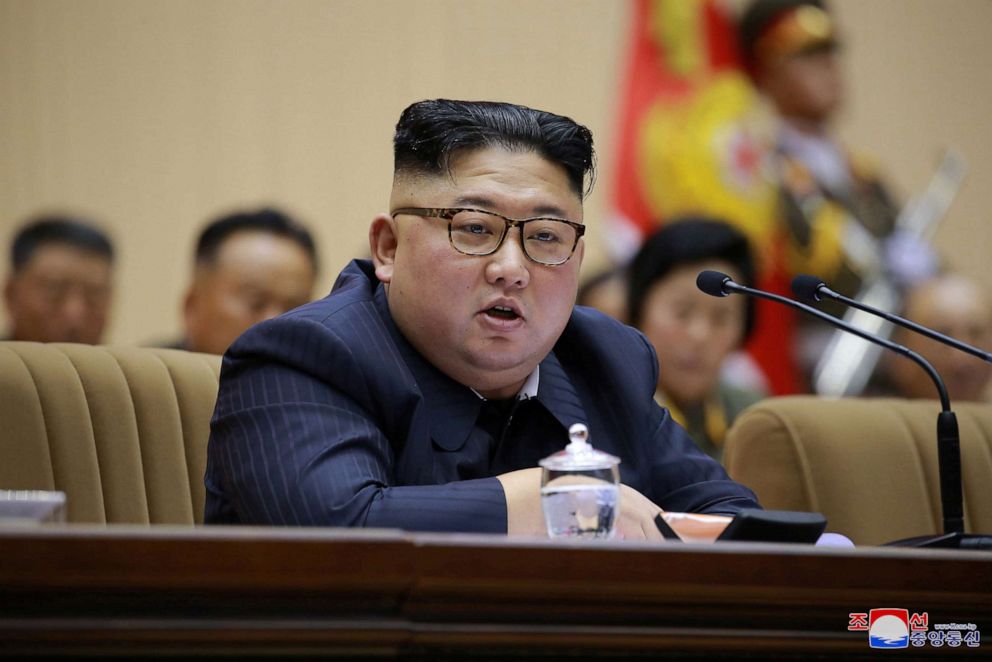Now in the spotlight, dissident group linked to North Korean break-in suspends operations
The group was accused of raiding a North Korean embassy in Madrid in February.
A shadowy North Korean opposition group accused of a brazen raid of the North Korean embassy in Madrid last month announced that it is "temporarily" suspending operations in the wake of glaring media attention.
"Multiple actions targeting the North Korean regime were being prepared, but because of speculative attack articles in the media, the activities of action groups have been temporarily suspended," the group, Cheollima Civil Defense, which is also known as Free Joseon, said in a Korean-language statement on its website. "We ask the media to refrain from taking interest in the identity of this group and its members."

Earlier this week a Spanish judge unsealed court documents related to the daylight embassy "assault," as it was described by Spanish authorities, and named several individuals suspected to be involved including the purported ringleader, Adrian Hong Chang, a U.S. resident.
A detailed account by Spanish authorities, contained in a judicial report obtained by ABC News, tracks Hong and other individuals purportedly linked to the attack as they travel to Spain, book hotels, rent cars, buy "tactical material" presumably for the operation, conduct the raid and then make their successful escape.
An American attorney for the group, Lee Wolosky, contested the Spanish court's version of events.
"The reported comments of the Spanish judge are misinformed in critical aspects and the decision to disclose the names of those opposing a regime that routinely assassinates its opponents is deeply troubling," Wolosky said.
According to a judicial summary, on the afternoon of Feb. 22, a group of 10 people using fake firearms burst into the North Korean embassy in the Spanish capital, badly beat and bound some staff members and tried to convince a high-ranking North Korean diplomat to defect. The diplomat declined and was himself gagged, authorities said.

The assailants held the embassy for several hours, but in the meantime, the wife of a North Korean employee managed to escape by jumping out a window. She alerted locals who called the police. When the police arrived, the leader of the assailants, named in the report as Hong Chang, purportedly greeted them at the door posing as a diplomat and told an officer everything was fine, authorities said.
The assailants then left the embassy with computers, hard drives and other electronics using embassy vehicles and, for Hong Chang and an associate, a ride-share car that had been arranged under the name Oswaldo Trump, according to the judicial report reviewed by ABC News.
On Tuesday, Cheollima Civil Defense claimed responsibility for the incident but said in a vague statement they were only responding to “an urgent situation” in the embassy. The group denied it had used violence or gagged anyone in its operation. It also apologized to Spain for involving the European nation in the group’s struggle against the North Korean regime.
"Our fight is only against the regime’s practices and on behalf of millions of our enslaved people,” reads a statement posted on a website that appears to belong to the group, whose involvement was first reported by The Washington Post.
In its statement Thursday, Cheollima called itself a group of North Korean defectors from around the world that have joined forced after fleeing from the Kim regime. ABC News has not confirmed details of the group's membership.
Jenny Town, a North Korea analyst at the Stimson Center’s “38 North,” told ABC News Wednesday little is known about the Cheollima Civil Defense group, which first came to some prominence in the wake of the assassination of North Korean dictator Kim Jong Un’s half-brother, Kim Jong Nam, in 2017. At the time, the group claimed it had helped protect Nam’s son, Kim Han Sol.
Hong Chang, appears to be the Adrian Hong who was known to North Korean observers for his work with dissidents in the past, according to The Associated Press. In the mid-2000s, when he was a college student, Hong co-founded a group called Liberty in North Korea (LiNK) that was devoted to helping North Korean refugees.
But Hong left LiNK a decade ago and has had “no involvement” with it since, according to Hannah Song, LiNK’s current CEO.
“We have no knowledge of his recent activities, and we have no information on the Madrid Embassy incident other than what has been published by the media,” Song said in a statement provided to ABC News Wednesday.
Town, who said she knew Hong years ago, said she didn’t understand what the group was trying to do in Madrid – especially by allegedly using violence, according to the Spanish police.
"That’s what makes this case really kind of surprising… It’s hard to kind of figure out what they hope to accomplish from all this,” she said. “If they’re really looking for regime change, what lengths are they willing to go to sort of engineer this?"
ABC News has been unable to reach Hong for comment.
This report has been updated.




